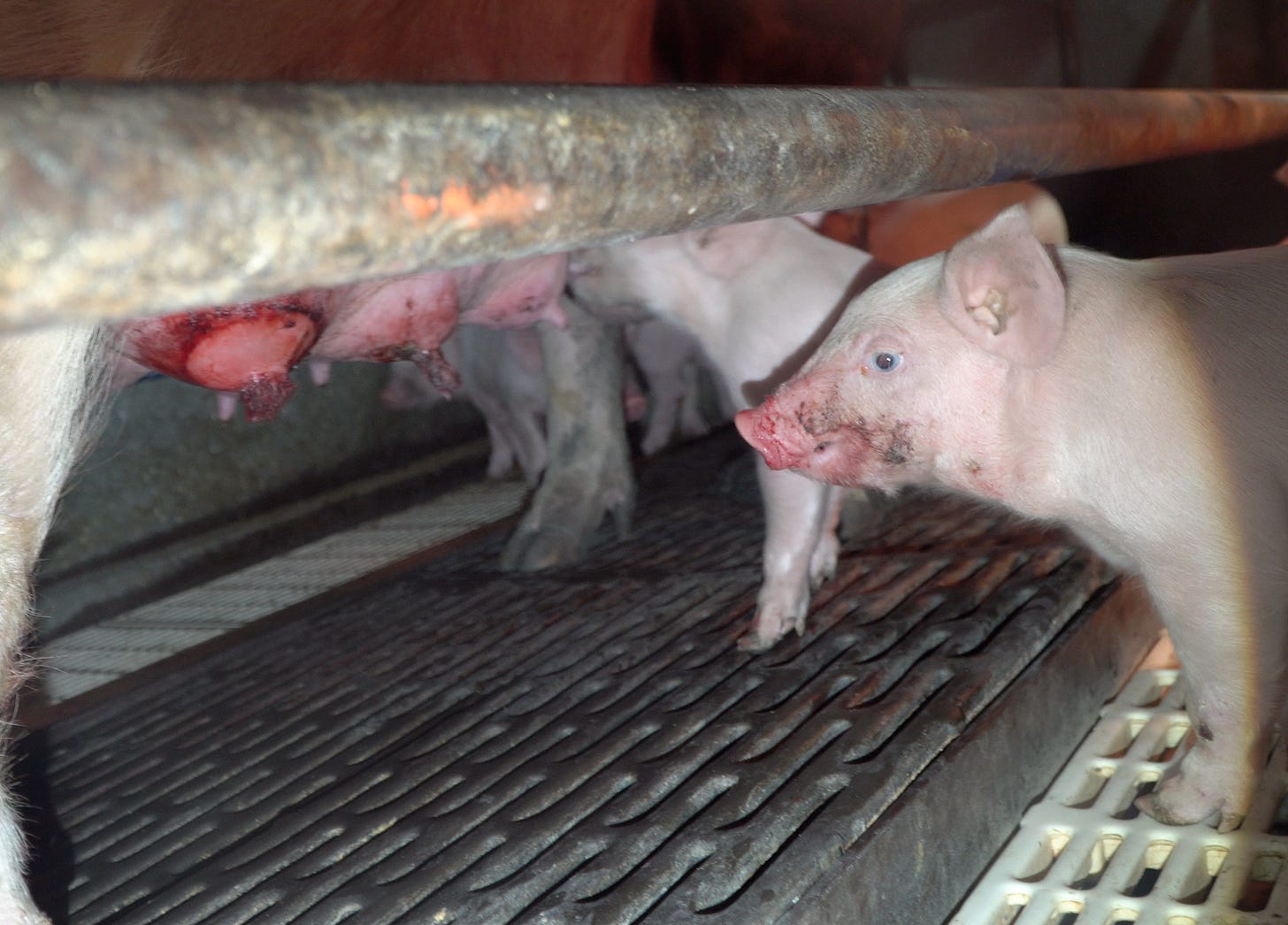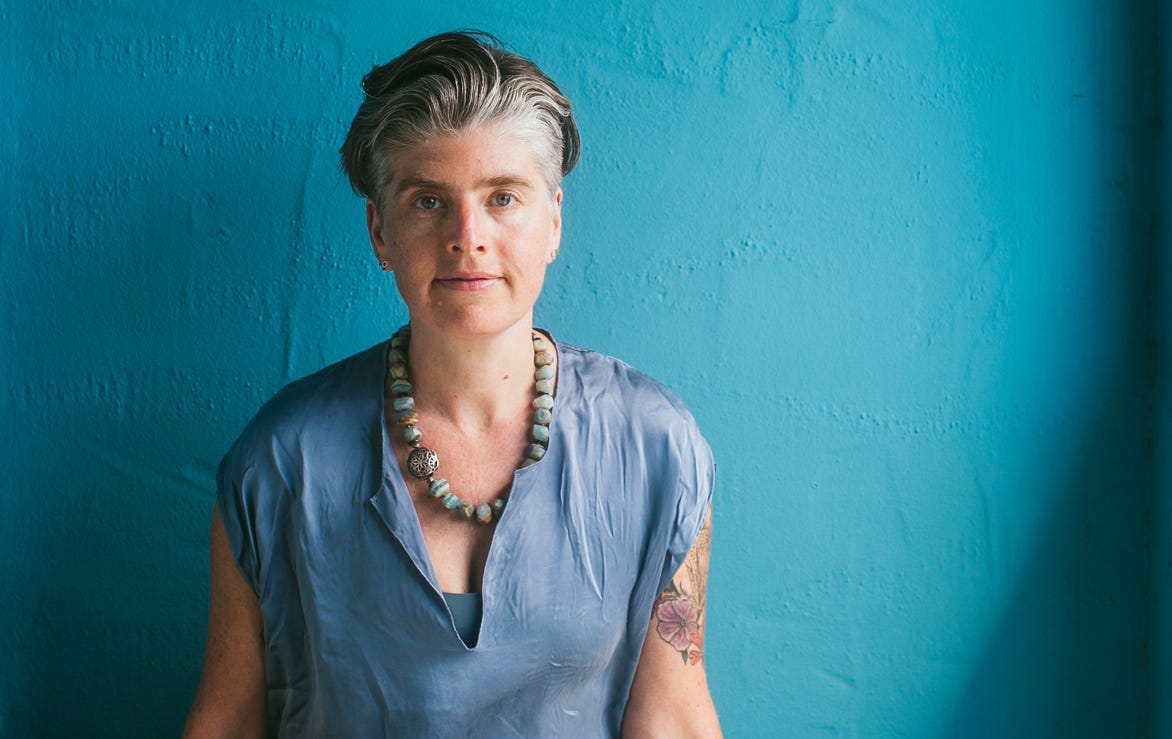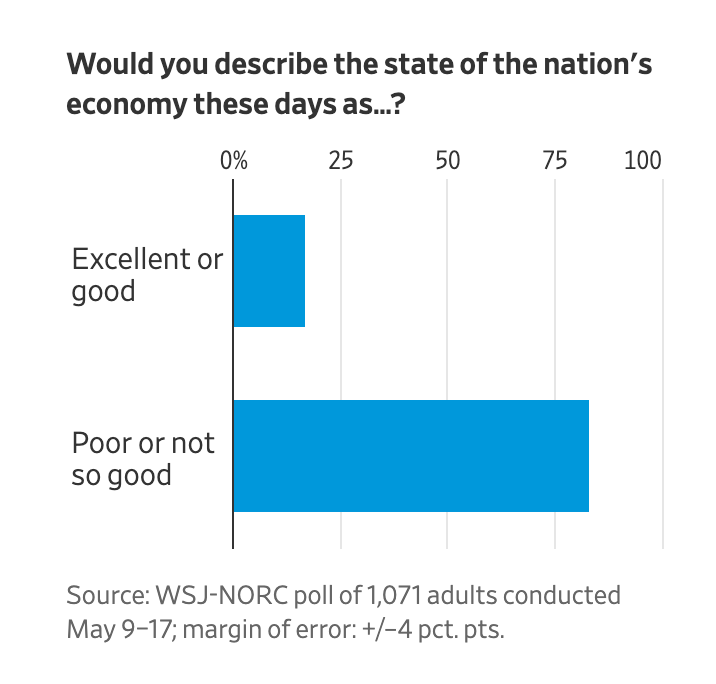The world is filled with horror. This professor learned to turn it into hope. (Podcast)
Prof. Hadar Aviram challenges corrupt practices in our legal system. But it took a personal health crisis for her to learn how to truly fight.
A few years ago, Hadar Aviram, the Thomas Miller Professor at UC Hastings College of the Law, collapsed. Stressed by the many injustices of the Trump Administration, an intense academic job, and an increasingly toxic political climate on the Left, Hadar began letting her physical health fail. She was not eating right, or exercising. And it all hit a low point when, one day, she collapsed to the ground in a heap of stress and exhaustion.
That moment of collapse, however, was also a moment of awakening. Hadar returned to a regular exercise schedule, focusing on the swimming that she loves. She began eating right, buying healthy and whole foods rather than eating out. And with the changes to her body, there were changes to her mind, too. Now, Hadar does not just seem physically fit, but mentally and emotionally vibrant too, despite the horrors unfolding around the world.
Listen to the conversation with Hadar on The Green Pill Podcast on how she bounced back.
Less than one month before I face a potentially life-changing trial, I wanted to talk to Hadar because of her legal acumen as a scholar of the criminal law. But I ended up benefitting just as much from this conversation’s personal wisdom. Because, to be frank, I’m not in the best place myself. The last year has been perhaps the hardest that I can remember. The death of my beloved dog Lisa sent me down spirals of negativity that I hadn’t experienced since struggling with suicidal thoughts as a teenager and child. A series of court rulings, both in my first trial in North Carolina, and my upcoming trial in Utah, has left me feeling more pessimistic than ever about the integrity of our legal and political system. Despite documenting nightmarish abuse, it is the animal rescuers, and not the corporations who engage in animal abuse, who are on trial.
In feeling this despair, I am far from alone. Americans are in a historically pessimistic mood. Eighty-three percent say the state of the economy is “poor or not so good,” and 86% say that the nation is greatly divided. Most, moreover, see these problems only worsening. As one pollster put it:
“In the prior years that we’ve asked this question, there’s at least been some hope, a little bit more hope, that things might get better.”
But what if there are ways to transform this despair and horror into hope? I asked Hadar to join the podcast, first and foremost, for her legal acumen. There were other life lessons from our conversation, though, that go far beyond the law in helping us cope with horror – and to even transform our horror into hope.
The first lesson is that to heal our minds, we must heal our bodies, too. The mind-body connection has been well-documented, but as Annie Paul Murphy argued in a recent book, perhaps “connection” is the right metaphor. Perhaps the body is not just connected to, but is part of the mind. The hormones running through our blood; the neurons firing in our aching muscles; even the temperature of the air in our lungs. All of these bodily attributes have a deep impact on our mental and emotional states; perhaps they are a fundamental part of our mental and emotional state. And those who ignore this will never be able to find healing or hope.
Hadar learned this the hard way. When she neglected her body, her mind, activism, and scholarship suffered too. But when she righted herself physically, her mind and spirit followed. She felt capable of getting through the challenges that life was presenting her.
I’ve seen this impact in my own life. When I feel physically strongest, I am mentally and emotionally strong too. (You’ll hear some of our personal workout secrets in this conversation. Mine is an unlimited membership at the high-intensity interval training gym (HIIT), Orangetheory!) If you’re feeling despair, take this lesson to heart: build your body to build your spirit and mind.
The second lesson is that, when faced with systemic horror, sometimes you have to “settle” for a technical victory. Some of the evils we confront — a system of mass incarceration that borders on slavery; the extermination of non-human species across this earth — are so huge and entrenched that changing them can feel impossible. And, indeed, head-on victories are rare. Arguing for animal rights, for example, in a legal and economic system that denies that animals are even living creatures is extraordinary difficult. (The state of Utah goes even further, denying by statute that farm animals are even animals, under its animal cruelty statute!)
Sometimes, however, you have to win using the very machinery of an evil system against it. Consider, for example, Hadar’s analysis of my own upcoming case, and her focus on the value of the animals that were removed from Circle Four Farms. As animal advocates, we of course believe, as Hadar believes, that every living being has intrinsic value. But the theft statute in Utah (as in most states) requires that any “property” that is subject to a theft be a thing of value, where value is measured by its price on the fair market. Hadar believes we should focus our arguments on the idea that, because the piglets we removed were sick and dying, they had no fair market or commercial value. That, in turn, would imply that they cannot be the subject of a legal theft.

That’s not a resounding precedent for animal rights. But it’s a win for the right to rescue because it would mean that removing a sick animal is not a crime. And these small, seemingly technical victories, Hadar believes, can take us down the path to bigger and more substantive victories in the future. If nothing else, the technical victories give us hope.
The third and most important lesson from this conversation, however, is that truth and hope are inextricably intertwined. Animal rights advocates face intense fear over our advocacy. While few face actual criminal prosecution, some of the most notable figures in academia and media have discussed how “coming out” for animal rights was one of the hardest choices in their life. Indeed, my former mentor Cass Sunstein wrote an article about the subject. We face ridicule, shame, and even death threats for merely stating our beliefs.
And yet, to find hope, we have to state our beliefs openly and truthfully nonetheless. On a personal level, Hadar has felt this in her own life and teaching. UC Hastings has been hit by a number of controversies in recent years over free speech, and Hadar shared with me the fear that has gripped many students and faculty members. Saying the wrong thing could be the end of anyone’s career. But while Hadar has been affected by this, she learned an important lesson when she stopped living in fear, and started just speaking her truth.
“All I can do is live my life with kindness, as I understand it,” she told me. That may include animal advocacy, in a world where vegans poll as one of the most hated demographics in the country. That may include a controversial view on a program such as Urban Alchemy, a nonprofit that puts former prisoners on the San Francisco streets to address homelessness, addiction, and mental illness. But what it will not include is hiding from our truth.
And it turns out, when we don’t hide, it’s far easier to find hope. The anxiety and shame associated with putting up a fake face to the world suddenly disappear when we simply speak our truth to the world. And that truth doesn’t just liberate us; it allows us to build a foundation for change. One cannot make real progress, after all, when we are living a lie.
This last lesson, of course, is also why I am very hopeful about the upcoming trial. I don’t mean to say that I expect us to win in court. The challenges we face are extraordinary, and the prospect of a legal victory is perhaps remote. Paul and I are getting ready for jail. But the difference between the two sides in this court battle is that Paul and I are completely open who we are, and what we did. We are ready to speak truth. Smithfield and the prosecution, in contrast, scramble to cover up their lies. The side that relies on truth is the side that will prevail, even if we must confront hardship as a result of speaking that truth.
—
So there it is: three lessons from a law professor, about things that, in many ways, have little to do with the law. If we are dealing with life’s horrors, here’s some advice on what to do. Heal your body to heal your mind. Find a victory, even if it’s technical. And ground yourself in truth. If we do these things, over the long term, I am confident that we can turn horror into hope.
But I’m interested in what you think. What helps you in moments where the horrors of life seem overwhelming
—
A few notes about upcoming events.
The topic for the upcoming Friday Night Hangout (August 19) was chosen by you. What Happens in this Utah Courtroom Affects Everyone. Here’s the event page. See you on Friday!
I’m hosting a going away party of sorts, the next Friday (August 26), which will also serve as the unofficial launch party for my new organization, The Sanctuary Initiative (TSI). The event page is here.
Both of these events are in-person, but if you’d like to join by Zoom, shoot me an email, and we can add you to the TSI WhatsApp chat, where we circulate Zoom info for various events.
That’s all for now. Until next time!




Thanks for rescuing the piglets.
Going into those places is hard.
The trial you are facing is another example of a corrupt legal system defending profit over life.
I don't want to contribute to any bitter feelings. Anyone with empathy can see who the bad guys are in this case. They're not you and Paul.
Hopefully the DA will do the right thing and drop these charges immediately. Otherwise, history will remember them no better than the faceless oppressors of the kangaroo courts that deemed human beings as property and prosecuted abolitionists fighting for freedom in the antebellum South.
I always enjoy reading smpleheart. Your perspectives resonate truth, beauty, and profoundly.
However, personally I have a bit of a problem with the fact that you inferred that Hadar was adversely affected by the injustices of Trump. (As you know, I am a supporter of Trump. Not particularly when it comes to animals, but what President is evolved to that degree?) Anyway, other than that, what injustices does she, or you refer to?